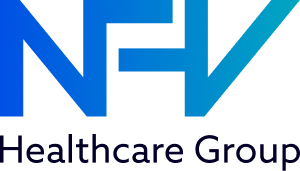Effective revenue cycle management (RCM) is crucial for hospitals’ financial health and sustainability in today’s rapidly evolving healthcare landscape. With shifting insurance regulations, rising patient financial responsibility, and the complexities of modern healthcare technology, managing the revenue cycle efficiently is more challenging than ever.
At NFV Healthcare Group, we understand hospital RCM’s pivotal role in the healthcare ecosystem and have empowered hospitals to maximize their revenue streams. Here’s a comprehensive guide on how can an organization improve its revenue cycle management.
The Role of Revenue Cycle Management in Hospitals
In any hospital, the revenue cycle is interconnected with several operational units, including patient registration, initial patient contact, eligibility verification, claims submission, and payment processing. Such a multi-step cycle is susceptible to bottlenecks and can lead to revenue leakage. Effective RCM ensures that hospitals are adequately reimbursed for their care, increasing cash flow and improving overall financial performance.
Common Challenges in Hospital RCM
Hospitals face an array of challenges when it comes to managing their revenue cycle effectively. These challenges often include:

Billing Errors and Denials
Incorrect billing and coding can lead to claim denials, delayed payments, and non-reimbursement. Common errors include late filing, lack of medical necessity documentation, and coding discrepancies.
Patient Collections
Patient responsibility rises as healthcare costs increase, leading to a more intricate payment collection process. Hospitals face the challenge of balancing the imperative to collect payments and upholding high levels of patient satisfaction to ensure positive healthcare experiences.
Compliance and Regulations
Staying updated on healthcare regulations like HIPAA, the Affordable Care Act, and others poses challenges for hospitals managing Revenue Cycle Management (RCM). Staying abreast of these intricate regulations demands continuous vigilance and expertise to ensure compliance and operational efficiency in the healthcare sector.
Operational Inefficiencies
Wastage results from inefficiencies in processes, such as delays in task completion, inadequate charge capture practices, and extended lag times in claim submission. Collectively, these contribute to significant revenue loss in organizations.
Strategies to Enhance Hospital RCM
Hospitals can implement several strategies to address these challenges and strengthen their revenue cycle management.

Streamlining Front-End Processes
Improving the front-end processes is crucial to prevent downstream revenue cycle disruptions. This includes:
- Accurate patient registration to avoid billing and claims submission errors.
- Clear and transparent communication with patients about their financial responsibilities and available payment options.
- Utilization of patient portals to empower patients to manage their accounts and payment activities.
- Ensuring proper insurance eligibility and verification to reduce claim denials.
Optimizing Claims Management
Fine-tuning the claims management process is essential for revenue cycle efficiency. Strategies include:
- Implementing charge description master (CDM) reviews to ensure proper charge coding and compliance.
- Utilizing technology to submit clean claims the first time, reducing rework and improving reimbursement speed.
- Establishing a denials management program to identify root causes and take proactive corrective measures.
Prioritizing Patient Communication
Enhanced patient communication can lead to better patient experiences and, in turn, improved collections. Hospital CRM involves:
- Offering clear, upfront communication on billing expectations and potential costs.
- Providing itemized statements and easy-to-understand explanations of charges.
- Offering financial counseling and payment plan options for patients who need assistance.
By implementing these proactive measures, hospitals can revolutionize their approach to revenue cycle management, ensuring financial stability and long-term sustainability.
Technology Solutions for Improved RCM

Technology plays a vital role in optimizing hospital RCM in the digital age. At NFV Healthcare Group, we offer state-of-the-art solutions that leverage the power of automation and analytics to streamline processes.
Advanced Revenue Cycle Management Software
Our RCM software integrates data from various departments, providing a comprehensive view of the entire process. This helps identify trends, monitor performance, and optimize workflows for maximum efficiency.
Artificial Intelligence and Machine Learning
AI and machine learning technologies can significantly reduce billing errors and identify patterns in reimbursement that lead to inefficiencies. These tools also help predict claim denials before they occur, allowing hospitals to take preventive actions.
Patient Relationship Management (PRM) Systems
PRM systems enhance communication with patients and offer personalized engagement strategies, which can lead to improved patient satisfaction and higher collection rates.
Electronic Health Records (EHR)
Integration with EHR systems can improve data accuracy and facilitate the sharing of patient information, resulting in better claim filings and a reduced of denials. Adopting technology enhances precision in revenue capture and billing and increases speed, accessibility, and data security in RCM processes.
Make Us Your RCM Partner!
The revenue cycle is the heartbeat of a hospital’s financial operations. By optimizing RCM processes, hospitals can ensure they’re not leaving money on the table and, more importantly, provide less financial worry to patients.
At NFV Healthcare Group, we aim to support hospitals in their quest for financial health. Our team of experts offers cutting-edge solutions that empower hospitals to overcome RCM challenges and achieve sustainable financial success. Partner with us today and experience the power of innovative healthcare technology. Get in touch with us.

